Why Taking Time for Yourself Is Non-Negotiable
Taking time for self is the intentional practice of setting aside moments dedicated solely to your personal well-being, reflection, and recharging. It's not a luxury—it's essential maintenance for your mental, emotional, and physical health.
For those seeking a quick answer about how to make time for yourself:
- Start small - Even 15 minutes daily makes a difference
- Schedule it - Block out non-negotiable "me time" in your calendar
- Set boundaries - Learn to say no to non-essential demands
- Create micro-moments - Practice deep breathing or mindfulness during everyday activities
- Eliminate guilt - Recognize that self-care strengthens your ability to care for others
Research shows that on average, people only spend 15 minutes a day on health-related self-care, despite evidence that regular alone time reduces stress, boosts creativity, and improves self-esteem.
"Tempus fugit: time flies." This ancient wisdom reminds us that waiting for the "perfect moment" to prioritize ourselves means it may never happen. The pandemic taught us how quickly life can change, yet many of us still postpone self-care with the promise of "someday."
Self-care isn't selfish—it's self-preservation. Just as you'd never expect an electronic device to run indefinitely without recharging, your mind and body need regular restoration to function optimally.
The challenge isn't about making more time (we all get the same 24 hours), but rather about taking time—consciously choosing to prioritize yourself amid competing demands. This shift in perspective from "making" to "taking" time is transformative.
I'm Brandi Garden, co-founder of Eversio Wellness, and my journey with time for self began during my struggle with autoimmune challenges and burnout, which led me to find the healing power of functional mushrooms and intentional self-care practices.

Why "Time for Self" Matters
In our hyper-connected, always-on world, carving out time for self has become more crucial than ever. Studies show that daily solitude is associated with lower negative affect, particularly for those navigating challenging social networks. This isn't just feel-good advice—it's backed by science.
When we talk about time for self, we're referring to intentional periods where you focus solely on your own needs, free from external demands and expectations. It's the difference between merely existing and truly thriving.
Mental & Emotional Recharge
Your brain, like any high-performance system, requires downtime to process, integrate, and reset. Research published in the Journal of Environmental Psychology found that intentional alone time significantly improves mood and reduces stress hormones like cortisol.
Of people who took a depression screen in 2020, a staggering 73% reported feeling tired or having very little energy at least half of the time. This chronic fatigue often stems from insufficient mental and emotional restoration—precisely what quality time for self provides.
When you take time to decompress, your nervous system shifts from "fight-or-flight" to "rest-and-digest" mode, allowing your body's natural healing processes to engage. This isn't indulgence—it's essential maintenance.
Spiritual & Creative Expansion
Solitude creates space for the deeper dimensions of life to emerge. Whether through meditation, journaling, or simply sitting quietly in nature, time for self allows us to connect with our inner wisdom and creative potential.
As author and researcher Dr. Brené Brown notes, "Creativity, which is the expression of our originality, helps us stay mindful that what we bring to the world is completely original and cannot be compared."
This creative wellspring often runs dry when we're constantly responding to external demands. Regular periods of solitude replenish these reserves, leading to:
- Improved problem-solving abilities
- Greater intuitive insights
- Deeper spiritual connection
- Increased creative output
Relationship Ripple Effect
Perhaps counterintuitively, taking time for self actually improves your relationships with others. When you're depleted, irritable, and running on empty, you simply have less to give those around you.
"You cannot pour from an empty cup," goes the saying, and research confirms this wisdom. A study in the Journal of Health Psychology found that physical touch during shared quiet time can lower cortisol levels in both parties—but first, you need to be centered and present yourself.
By investing in your own well-being, you:
- Bring more patience to challenging interactions
- Listen more attentively to loved ones
- Set healthier boundaries
- Model self-respect for children and others
- Contribute more meaningfully to your community
Breaking Barriers: From "Making" to "Taking" Time
One of the most powerful shifts in establishing regular time for self happens when you change your language—and by extension, your mindset—from "making time" to "taking time."
Think about it: saying you need to "make time" implies creating something that doesn't exist, which we all know is impossible. We each have exactly 24 hours in our day. The difference lies in how we choose to spend those precious hours and what we prioritize.
When you shift to "taking time," you acknowledge that the time already exists, and you're consciously choosing to dedicate some of it to yourself. This subtle but profound shift removes the frustration of trying to manufacture extra hours and places the focus where it belongs: on your choices and what truly matters to you.
Common Roadblocks & Mindset Shifts
Many obstacles to time for self are more psychological than practical. Let's explore the most common barriers and how to overcome them:
The Time Scarcity Myth is perhaps the most pervasive. When you catch yourself saying "I'm too busy" or "I don't have time," pause and recognize that "too busy" often translates to "not a priority." This awareness allows you to examine what you're prioritizing instead.
Digital Distractions consume more time than we realize. The average American spends over 4 hours daily scrolling on their smartphone—that's more than two full days each week! Using screen time tracking apps can help you become aware of these digital time-sinks and reclaim those minutes for intentional self-care.
Perfectionist Thinking often sounds like "If I can't do it perfectly (or for long enough), why bother?" This all-or-nothing approach keeps many of us from starting at all. Instead, accept the concept of "micro-self-care"—even 5 minutes of intentional breathing has significant benefits for your nervous system.
Cultural Conditioning bombards us with messages that equate busyness with importance and productivity with worth. Question these narratives and consider redefining success to include well-being and balance. After all, what's the point of achievement if you're too depleted to enjoy it?
Overcoming Guilt & "Selfish" Myths
The most insidious barrier to time for self is often guilt—that nagging feeling that focusing on your needs means neglecting others or being "selfish."
This couldn't be further from the truth. Self-care is self-preservation, not self-indulgence. Just as the flight safety instructions remind us: "Put on your own oxygen mask before assisting others." This isn't just clever messaging—it's a perfect metaphor for life. You simply cannot give from an empty cup.
Try this cognitive defusion exercise to separate from guilt-inducing thoughts:
- Notice when thoughts like "I should be doing something productive" arise
- Write the thought down, starting with "I'm having the thought that..."
- Ask yourself: "Is this thought helpful? Is it true? Where did I learn this?"
- Replace with a more supportive thought like "Taking care of myself enables me to better care for others"
Exploring your relationship with time for self through journaling can be incredibly revealing. Consider these prompts: What messages did you receive growing up about taking time for yourself? When you do take time for yourself, what emotions come up? What would you do if you had permission to prioritize yourself without guilt? How does your well-being affect those around you?
At Eversio Wellness, we understand that true self-care includes supporting your body's natural rhythms and stress responses. Many of our customers find that incorporating adaptogenic mushrooms into their self-care routine helps them maintain balance even during busy periods, making it easier to honor their commitment to time for self.
Carving Out Time: Practical Strategies You Can Start Today
Moving from theory to practice, let's explore concrete strategies to incorporate more time for self into your daily life, no matter how busy you are.
Audit & Declutter Your Schedule
Before adding self-care activities, take stock of how you currently spend your time:
-
Conduct a Time Audit:
- Track your activities for 3-7 days in 30-minute increments
- Categorize activities as essential, important, or unnecessary
- Identify time-wasters and low-value activities to eliminate
-
Apply the ABC Method:
- A tasks: Absolutely must do (health, core responsibilities)
- B tasks: Better if you do them, but could delegate
- C tasks: Could eliminate with minimal consequence
-
Eliminate Time-Wasters:
- Unsubscribe from unnecessary emails and notifications
- Batch similar tasks (emails, phone calls, errands)
- Set time limits for social media and news consumption
As you free up pockets of time, protect them zealously for your self-care practice.
Micro & Macro "Time for Self" Moments
The beauty of time for self is that it can be incorporated in both small moments throughout your day and larger dedicated blocks:
Micro-Moments (1-15 minutes):
- Practice deep breathing while waiting for your coffee to brew
- Take a mindful shower, focusing on sensations and scents
- Enjoy a 5-minute stretching session between meetings
- Savor a cup of mushroom tea without multitasking
Macro-Sessions (30+ minutes):
- Schedule a weekly "power hour" just for yourself
- Take a monthly half-day retreat at home or in nature
- Book a quarterly "personal planning day" to reflect and reset
- Designate Sunday evenings as technology-free time
Research shows that a 20-minute nap can be more rejuvenating than a cup of coffee, and a 15-minute walk in nature can significantly reduce cortisol levels. These aren't indulgences—they're strategic investments in your productivity and well-being.
Boundaries & The Power of "No"
Setting healthy boundaries is essential for protecting your time for self. Saying "no" to others often means saying "yes" to yourself.
Effective boundary-setting strategies:
Use time-bound responses: "I can help with that next week, but my schedule is full today."
Offer alternatives: "I can't take on that project, but I can connect you with someone who might be able to help."
Practice the pause: "Let me check my calendar and get back to you" instead of immediately agreeing.
Create firm work cut-off times: Establish when you'll stop checking emails or taking work calls.
Communicate clearly: "I've set aside this time for self-care, which helps me be more present when we're together."
Boundaries aren't walls—they're gates that you control. They protect your energy and ensure you have something meaningful to give when you choose to engage.
Tools & Tech for Accountability
Leverage technology to support your time for self rather than detract from it:
- Calendar blocking: Schedule self-care appointments with the same commitment as work meetings
- Habit tracking apps: Monitor your consistency with self-care practices
- Digital wellness tools: Use app limits and focus modes to minimize distractions
- Journaling platforms: Try Reflection.app or similar tools to build a reflection habit
The key is making your self-care non-negotiable by treating it with the same respect as your other important commitments.
Build Your Personalized Self-Care Menu
Think of time for self as a buffet, not a one-size-fits-all meal. What refreshs me might leave you feeling drained, and what fills your cup might do nothing for someone else. The beauty lies in finding the perfect blend of practices that nourish your unique body, mind, and spirit.
I've found that creating a "self-care menu" helps turn abstract intentions into concrete actions. Just like you might plan meals for the week, having a menu of go-to self-care practices makes it easier to incorporate them when life gets hectic (which is precisely when you need them most).
Quick Daily Rituals (≤15 min)
Even on your most jam-packed days, you can find small pockets of time for self-nourishment. Consistency trumps duration—a daily 5-minute practice yields far more benefits than an occasional hour-long session.
For physical well-being, try a 5-minute morning stretch routine that awakens your body before demands begin. A brisk 10-minute walk around your neighborhood can reset your nervous system midday. Even three minutes of deep, diaphragmatic breathing between meetings can lower cortisol levels and improve focus.
When it comes to mental clarity, I've found that 10 minutes of journaling helps process thoughts that might otherwise circle in my mind all day. A 5-minute meditation using a guided app can create mental spaciousness, while reading just a few pages of an inspiring book before bed can shift your perspective.
For emotional balance, try listening to a favorite song without multitasking—really experiencing the music rather than using it as background noise. Setting a daily intention each morning creates an emotional anchor, while noting three specific things you're grateful for has been shown to boost mood and resilience.
Spiritual connection doesn't require hours of meditation. A brief morning prayer or watching the sunrise mindfully can create a sense of something larger than daily concerns. Even taking a moment to feel your feet on the earth and breathe consciously connects you to the present moment—the doorway to spiritual awareness.
Weekly Deep-Dive Sessions
While daily micro-practices build a foundation, deeper experiences provide more profound restoration. These longer sessions—typically 30 minutes to a few hours—allow you to go beyond surface-level relaxation.
Taking yourself on a solo trip to a museum, hiking trail, or quiet café with a good book creates space for reflection without interruption. Research shows that these "dates with yourself" strengthen self-awareness and reduce dependency on external validation.
A weekly digital detox—even for just 4 hours—can reset dopamine pathways and help you reconnect with analog pleasures. Try designating Sunday mornings as screen-free time, allowing your brain to process information differently.
Creative expression without judgment open ups parts of yourself that logical thinking can't access. Whether through art, music, writing, or dance, creating purely for the joy of it (not for sharing or approval) taps into a different kind of energy.
Nature immersion has been scientifically proven to reduce rumination and stress. Even in urban environments, finding a park or garden for an hour can shift your nervous system from "fight-or-flight" to "rest-and-digest" mode.
Setting aside time for a reflective review of your week helps integrate experiences and learnings. This isn't about productivity assessment but rather noticing patterns, celebrating wins (no matter how small), and gently learning from challenges.
Functional Mushroom Support for Me-Time
At Eversio Wellness, we've finded that adaptogenic mushrooms can be powerful allies in your time for self practice. These natural supporters help your body adapt to stress and improve your self-care rituals in specific ways.
When you're seeking calm reflection, Reishi mushroom—known as the "mushroom of spiritual potency" in traditional Chinese medicine—helps promote relaxation and quality sleep. Its adaptogenic properties help maintain balance during stressful periods, making it perfect for evening wind-down rituals or meditation practices.
For practices requiring mental clarity like journaling or creative pursuits, Lion's Mane mushroom supports cognitive function and focus. Research suggests it may support nerve growth factor production, essential for brain health and helping you stay present during your self-care time.
If your self-care involves physical restoration through yoga, hiking, or dance, Cordyceps mushroom helps support energy and stamina. Traditionally used to support vitality and physical resilience, it can improve more active self-care practices.
You can easily incorporate these functional mushrooms into your self-care routine through supplements or by adding mushroom extracts to teas, coffees, or smoothies during your dedicated time for self. The key is finding which mushrooms resonate with your specific self-care needs and incorporating them consistently.
I've personally found that adding a mushroom elixir to my morning ritual creates a moment of intention—a small act that signals to myself that my well-being matters. It's not just about the physical benefits but also the psychological power of this small act of self-care.
Reflect, Review, Grow: Journaling for Continuous Improvement
There's something almost magical about putting pen to paper during your time for self. Research published in the Journal of Happiness Studies found that even a brief gratitude writing practice can significantly decrease stress and negative feelings—even during challenging times like the COVID-19 pandemic.
I've found in my own life that journaling creates a sacred space where thoughts can breathe and emotions can find their voice. It's not about perfect prose or deep insights every time; it's about showing up for yourself consistently.
Journaling serves as a multifaceted tool in your self-care toolkit:
It creates mental space by externalizing your swirling thoughts and feelings It reveals patterns in your emotional landscape that might otherwise go unnoticed It provides a tangible record of your growth journey over time It actually strengthens the neural pathways associated with insights and solutions
When we write, we engage both hemispheres of our brain—the logical left side and the creative right side—creating connections that might not happen through thinking alone.
Success & Failure Debrief
One of my favorite journaling practices involves regularly reviewing both successes and setbacks. This balanced approach builds resilience and fosters genuine growth.
For your success review, try asking yourself: What went well this week, and why? Which of my strengths did I use effectively? What small wins am I overlooking or discounting? How can I build on these successes moving forward?
Small wins matter enormously. Our brains are wired to focus on threats and problems, so deliberately celebrating tiny victories counterbalances this natural negativity bias. Maybe you took a 10-minute walk during lunch instead of scrolling social media, or perhaps you paused before responding to a triggering email. These moments deserve recognition.
For your challenge review, explore: What didn't go as planned, and what can I learn from it? Was this within my control? If yes, what might I do differently next time? If not within my control, how can I find peace with it? What support or resources might help me steer similar situations better in the future?
This practice of reviewing both highlights and lowlights develops psychological flexibility—the ability to adapt to changing circumstances while staying connected to your values. It's not about toxic positivity or dwelling on failures, but rather about extracting wisdom from all your experiences.
Tracking Progress & Adjusting
The Japanese concept of Kaizen—continuous small improvements—perfectly suits developing your time for self practice. Rather than making dramatic lifestyle overhauls that rarely stick, focus on gentle, consistent refinement.
Start exactly where you are, perhaps with just 5-15 minutes of intentional self-time daily. Track consistently when, how, and how long you engaged in self-care. Notice the impact by recording how you feel before and after your practice. Make micro-adjustments based on what you observe, tweaking one small element at a time. And importantly, celebrate every consistent week, no matter how small the practice.
I love using a simple -5 to +5 scale to rate different life areas monthly:
- Mind: Mental clarity and engagement
- Body: Physical well-being and energy
- Soul: Spiritual connection and purpose
- Work: Professional fulfillment and challenge
- Play: Joy and recreation
- Love: Quality of relationships
This regular check-in helps identify which areas need more attention in your self-care practice. Perhaps your Mind and Body scores are strong, but your Play score has been consistently low. That insight might lead you to incorporate more playful elements into your time for self.
At Eversio Wellness, we've found that functional mushrooms can beautifully support this reflection practice. The calming properties of Reishi can create the mental space needed for honest self-assessment, while Lion's Mane may improve the cognitive clarity that makes journaling more insightful. These natural allies can help you dive deeper into your self-findy journey, making your time for self even more meaningful and productive.
Your journaling practice, like all aspects of self-care, is uniquely yours. Let it evolve organically as you find what brings you the most clarity, comfort, and growth. The most important thing is simply to begin.
Frequently Asked Questions about Making Time for Yourself
How do I start if my schedule is already packed?
Begin with just 5 minutes daily—everyone can find 5 minutes. Wake up slightly earlier, use part of your lunch break, or replace some social media scrolling with intentional self-care. It's about taking time, not making it. Start by auditing where your time currently goes and identifying low-value activities you can reduce.
The key is consistency over duration. Five minutes daily builds a stronger habit than an hour once a week. As this becomes routine, gradually extend the time. Many people find that once they experience the benefits of regular time for self, they naturally prioritize it more.
Is "me-time" different from self-indulgence?
Absolutely. True time for self is about restoration, not escape. While binge-watching Netflix or scrolling social media might feel good momentarily, these activities often leave you more depleted. They're passive consumption rather than active restoration.
Effective self-care nourishes you on deeper levels—physically, mentally, emotionally, and spiritually. It might include challenging activities like journaling about difficult emotions, setting boundaries, or engaging in physical exercise. The distinction is in the intention and outcome: Does this activity restore my energy and clarity, or merely distract me temporarily?
How can journaling actually make a difference?
Journaling works on multiple levels. Neurologically, writing engages your brain's frontal lobe, helping with decision-making and emotional regulation. Psychologically, it creates distance between you and your thoughts, allowing for greater perspective.
Research shows that regular written reflection can:
- Reduce rumination and worry
- Improve working memory
- Strengthen immune function
- Accelerate healing from traumatic experiences
- Improve problem-solving abilities
Even 5-10 minutes of focused writing can yield these benefits. The key is consistency and honesty—writing what you truly think and feel rather than what you "should" think or feel.
Open up Nature's Potential with Eversio!
Taking time for self isn't just a nice idea—it's essential maintenance for your mind, body, and spirit. At Eversio Wellness, we believe that nature offers some of the most powerful allies for your self-care journey, which is why we've dedicated ourselves to creating premium mushroom extracts that complement your wellness rituals perfectly.
Our passion for fungi isn't just about business—it's about helping you harness the natural power of adaptogenic mushrooms that have been revered for centuries. Each of our USDA Organic Certified extracts is carefully crafted to support your body's innate resilience, working in harmony with your self-care practices.
When you're carving out time for self, consider adding our specially formulated mushroom extracts to improve your experience:
The Chill Now - Organic Reishi Mushroom 15:1 Dual Extract Capsules ($64.99) brings the "mushroom of spiritual potency" to your evening wind-down ritual. This powerful extract supports relaxation and quality sleep—essential components for effective self-care and stress management. Many customers find it perfect for evening meditation or as part of a bedtime routine.
The Focus Now - Organic Lion's Mane 8:1 Dual Extract Capsules ($64.99) helps sharpen mental clarity during your dedicated self-time. Whether you're journaling, reading, or simply wanting to be more present in your mindfulness practice, Lion's Mane supports cognitive function and focus when you need it most.
The Awaken Set - A Gift of Mushroom Wellness brings together a powerful synergy of functional mushrooms designed to lift your daily self-care. Experience clearer thinking, natural energy, and digestive support—while making a planet-positive choice with 100% home compostable refill pouches. This set is crafted to last 60 days when used as recommended, helping you build a sustainable wellness routine.
What sets our mushrooms apart is how they're grown—following the traditional Di Dao principle, which means cultivating them in their spiritual and native homeland with the precise environmental conditions they need to thrive. This traditional approach ensures they deliver their intended spiritual energy and potency to support your journey toward greater balance and vitality.
Establishing a regular time for self practice isn't about perfection—it's about progress. Start small, stay consistent, and be gentle with yourself as you develop this essential habit. Even five minutes daily is better than an hour once a month. Your future self will thank you for the investment you're making today.
We invite you to explore our complete range of mushroom wellness products, thoughtfully designed to complement your self-care rituals and support your path to greater well-being.
FAQs About Mushroom Supplements
Are there any risks or side effects associated with mushroom supplements? Functional mushroom supplements like ours are generally well-tolerated by most people. Some individuals might experience mild digestive adjustment when first incorporating them into their routine. We recommend starting with a lower dose and gradually working up to the suggested amount. As with any supplement, it's always wise to check with your healthcare provider before beginning, especially if you have existing health conditions or take medications.
Who should avoid taking specific mushroom supplements? While our extracts are made from food-grade mushrooms, certain groups should exercise caution:
- Pregnant or breastfeeding women should consult their healthcare provider first
- People with autoimmune conditions should discuss with their doctor, as some mushrooms have immune-modulating properties
- Those with known mushroom allergies should avoid these supplements
- Individuals taking blood thinners should speak with their doctor before taking Reishi, as it may have mild anticoagulant effects
Is it safe to combine mushroom supplements with medications? Some mushroom extracts may interact with certain medications. For example, Reishi might improve the effects of blood pressure and blood-thinning medications, while Lion's Mane could potentially affect blood sugar levels, possibly interacting with diabetes medications. Always have a conversation with your healthcare provider about potential interactions between your specific medications and mushroom supplements.



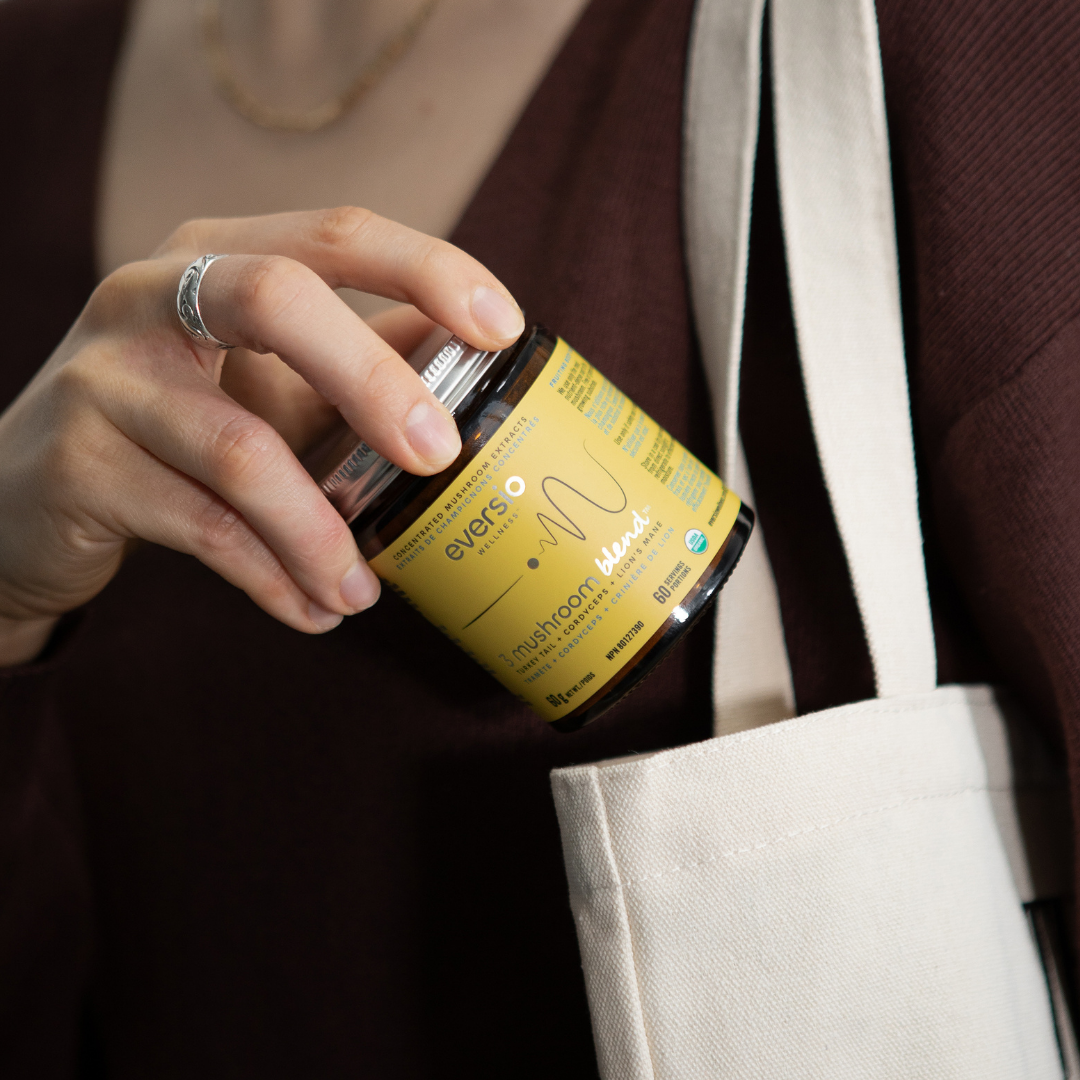

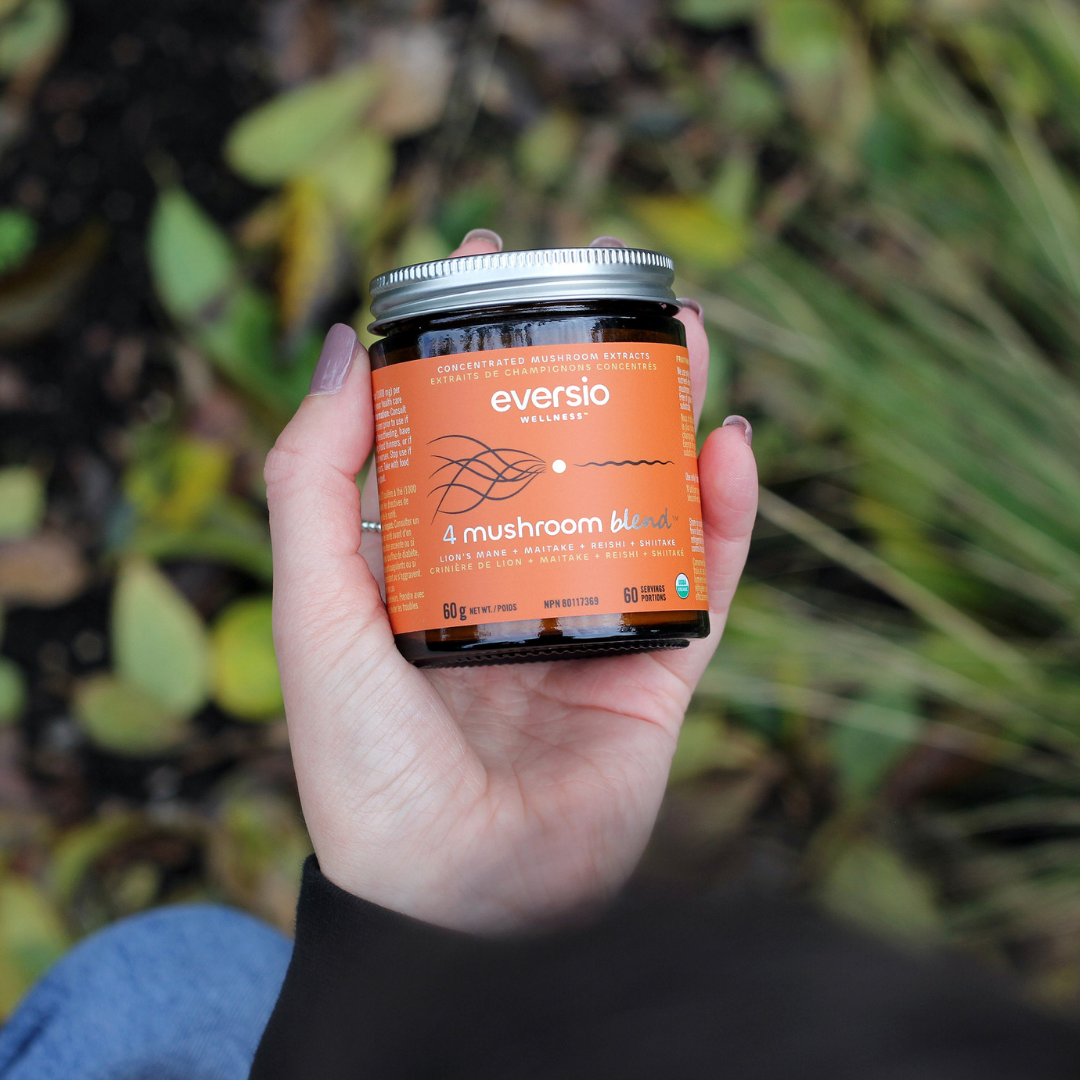

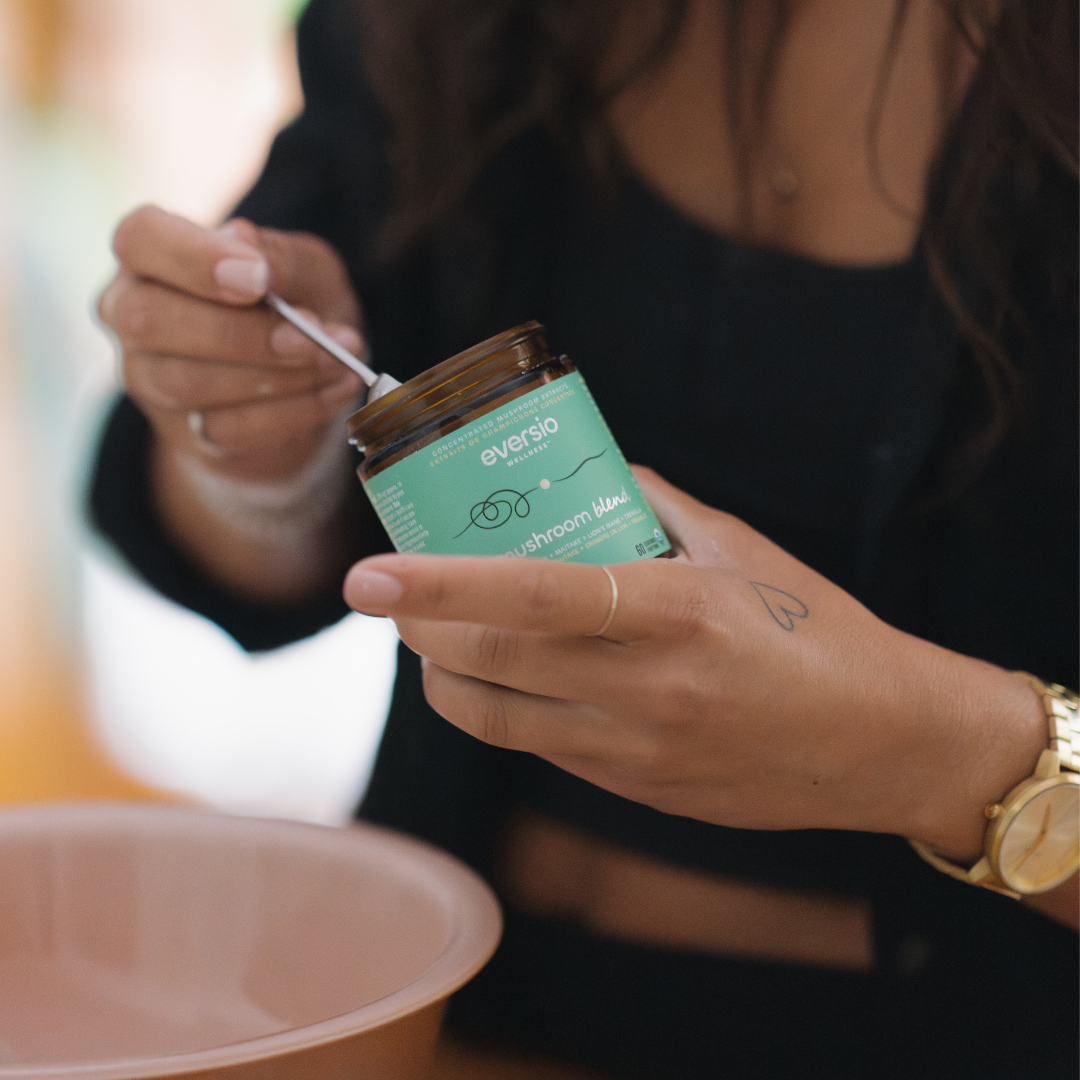

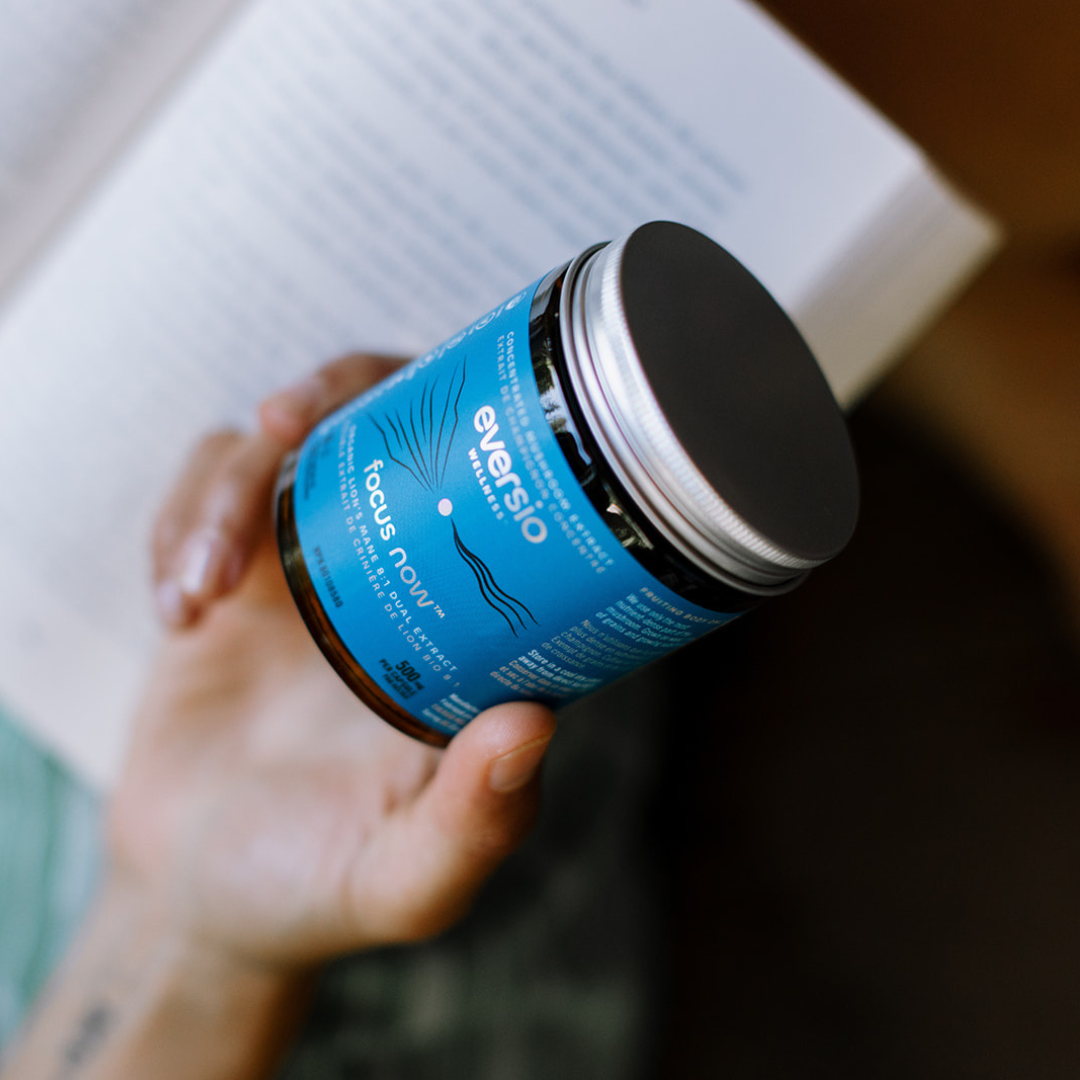

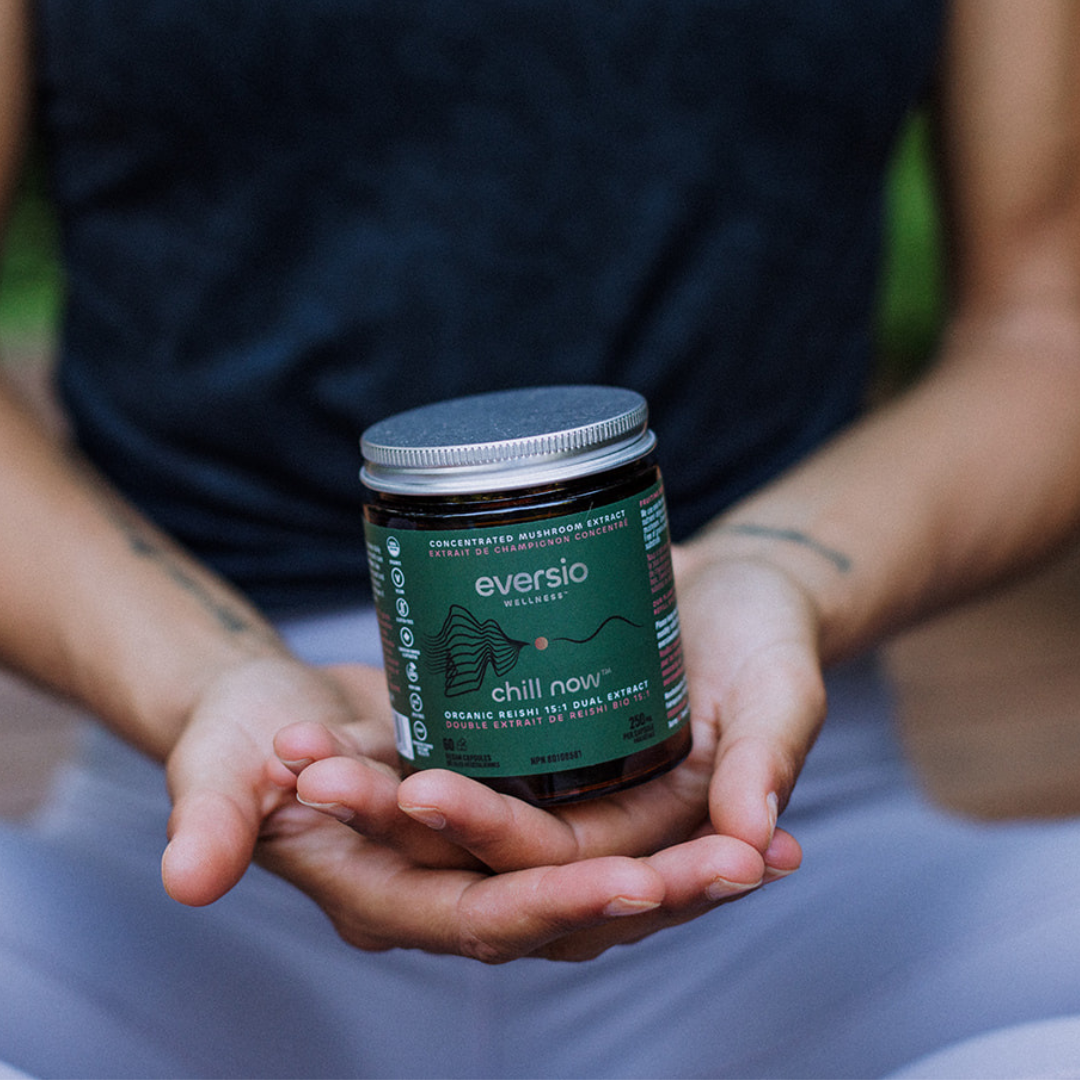


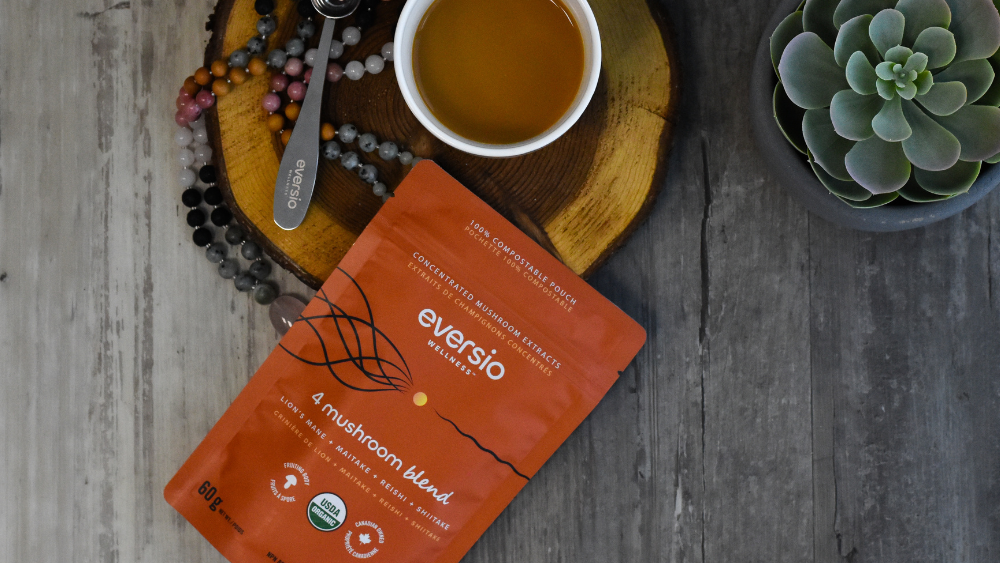





Leave a comment
This site is protected by hCaptcha and the hCaptcha Privacy Policy and Terms of Service apply.